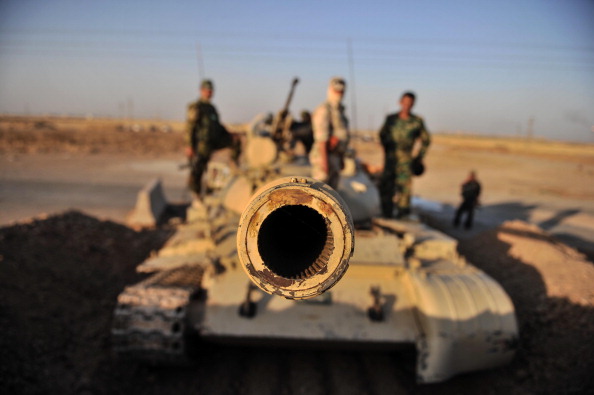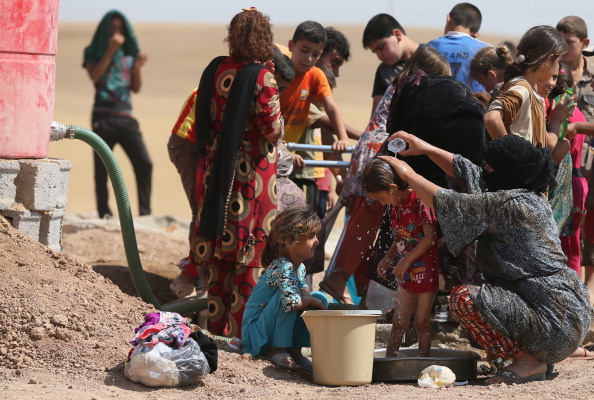
Kurdish Peshmerga forces stand guard in the oil-rich city of Kirkuk on June 17 (Photo Credit: Onur Coban/Anadolu Agency/Getty Images).
As the latest crisis in Iraq unfolds, here are three basic points for U.S. policymakers to keep in mind:
- The protection of civilians must be a top priority in Mosul and in every Iraqi community facing armed conflict.
- The Iraqi central government has an abysmal human rights record that has left communities scarred. Government human rights violations have widely been seen as a significant factor in widespread popular discontent.
- The U.S. government must push the Iraqi central government to make significant human rights reforms in order to address long-term public discontent and instability.
Protection of civilians must be a top priority in Mosul and in every Iraqi community facing armed conflict.
500,000 civilians are reported to have fled Mosul following its takeover by one or more armed groups that include those belonging to the Islamic State of Iraq and Sham (ISIS). This follows the reported displacement of close to half a million Iraqis in Fallujah since January, following ISIS’ expulsion of Iraqi security forces there.
ISIS armed groups, Iraqi security forces, and other potential armed groups must avoid repeating the violence against civilians that took place in Fallujah. Iraqi government forces have used indiscriminate shelling in Fallujah in the past six months, including on hospitals and in residential areas. There have been over 5,000 civilian deaths.

Iraqi displaced people cool down at a temporary camp set up to shelter Iraqis fleeing violence in northern Iraq on June 18 (Photo Credit: Karim Sahib/AFP/Getty Images).
The Iraqi central government has an abysmal human rights record that has left communities scarred. Government human rights violations have widely been seen as a significant factor in widespread popular discontent.
Thousands of detainees languish in prison without charge. Many of those who are brought to trial are sentenced to long prison terms or to death after unfair proceedings. In many cases, convictions are based on “confessions” extracted under torture.
Iraq remains one of the world’s most prolific executioners with at least 169 executed in 2013. As with prison terms, death sentences can also follow “confessions” extracted under torture. In many cases, such “confessions” are televised nationally.
Torture and other ill-treatment inside prisons and detention centers is rife and routinely goes unpunished.
To ensure stability in Iraq, the U.S. government must address popular discontent by pushing the Iraqi central government to make significant human rights reforms.
Iraq’s long-term human rights crisis can no longer be viewed by the U.S. and other external governments as “Iraq’s problem” or an internal matter. To ensure security and safety in Iraq, widespread popular discontent must be addressed by pushing the Iraqi central government to end its terrible human rights record.
US is the responsible for all the crisis in Iraq. Why US attack on US? If anything was wrong, then why US did not inform to the Iraqi Government?